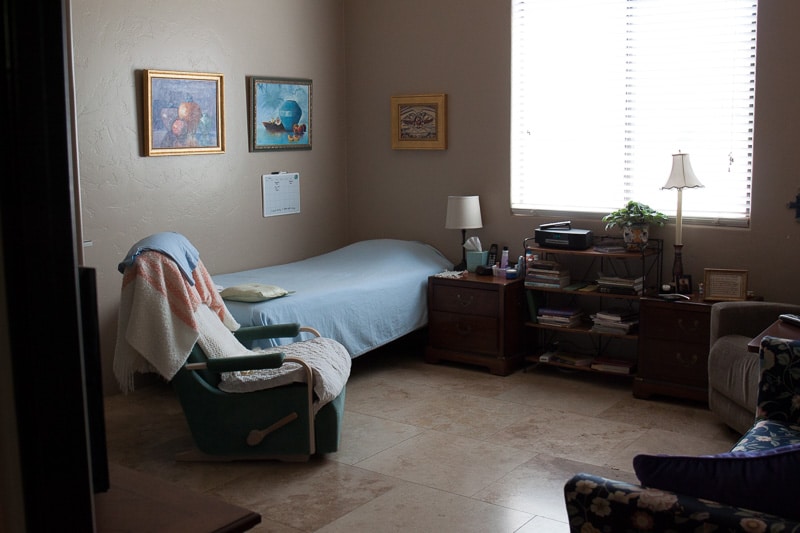Deciding on the right living arrangement for yourself or a loved one can feel overwhelming—especially when weighing the differences between assisted living vs senior housing. While both provide support for older adults, the levels of care, costs, and lifestyle options vary widely. Understanding these differences is the first step in making an informed and confident choice.
Whether you’re exploring options for increased support or maintaining a more independent lifestyle, knowing the distinctions between assisted living vs senior housing will help you determine the best fit. Communities like Heritage Manor offer tailored care, while senior housing options emphasize autonomy and vibrant community life. Let’s dive into the features, benefits, and financial aspects of each choice.
What Is Assisted Living? Services and Support Explained
Assisted living is ideal for individuals who value independence but require help with day-to-day activities like bathing, dressing, medication management, and meal preparation. At Heritage Manor Assisted Living, services are designed to deliver compassionate care while respecting resident autonomy.
- 24/7 trained staff for safety and medical response
- Personalized care plans
- Nutritious meals and housekeeping services
- Social and recreational programming
- Transportation services
This type of care is especially important for families searching for assisted living near Tucson, AZ, where high-quality services and peaceful surroundings are a priority.
For a closer look at their offerings, explore Heritage Manor’s living options or read about their commitment to resident care.
Understanding Senior Housing: A Lifestyle-Centered Choice
Senior housing—also known as independent living—caters to older adults who are still capable of managing their lives independently but want the benefits of a supportive community. These communities typically include:
- Private apartments or cottages
- Recreational and educational programming
- Community dining and outings
- Fitness and wellness resources
Many people choose senior living near Tucson, AZ, for the area’s warm climate and community amenities. For seniors who enjoy autonomy but want social interaction and convenience, senior housing can be a rewarding option.
Additionally, some senior housing communities offer the flexibility to transition into assisted living later, creating a continuum of care in one location.
Comparing Care Levels: Assisted Living vs Independent Living
To better understand assisted living vs senior housing, it’s essential to compare the care levels. In assisted living, trained staff are available to help with personal care, while senior housing residents typically live with minimal assistance.
Care Services Offered
- Assisted Living: Assistance with personal hygiene, mobility, and medications.
- Senior Housing: Focus on independence; services like housekeeping and meals may be optional.
At Heritage Manor, residents benefit from customized care assessments that ensure the right level of support. For those comparing independent living vs assisted living cost, the price difference often reflects the availability of hands-on assistance and medical support.
According to SeniorLiving.org, the national median monthly cost of assisted living is around $4,500, whereas independent living can range from $1,500 to $3,000 per month depending on location and amenities.
Levels of Independence
Understanding the independence levels offered in different senior living options is crucial. Here’s a breakdown of independent living vs assisted living vs nursing home:
- Independent Living: Maximum autonomy, social opportunities, and access to optional services.
- Assisted Living: Support with personal tasks and routine care.
- Nursing Homes: Intensive medical care and rehabilitation services.
Knowing where your loved one falls on this care spectrum can help guide the decision between these options. If you’re considering assisted living near Tucson, AZ, be sure to evaluate the level of help your loved one needs now—and may need in the future.
Social Life and Community Engagement
Social engagement is a core benefit of both assisted living and senior housing, though the structure of activities may differ.
- Assisted Living: Scheduled activities like music therapy, games, and group outings help residents stay active and connected.
- Senior Housing: More freedom to participate at will in community events and social clubs.
For seniors battling isolation, the right community setting—whether assisted living vs senior housing—can provide a life-changing sense of belonging and purpose.
Schedule a tour of Heritage Manor Senior Living now.

Amenities That Support Quality of Life
At Heritage Manor and similar communities, residents enjoy access to amenities such as:
- Chef-prepared meals served in communal dining spaces
- Fitness rooms and wellness programs
- On-site salons and therapy services
- Outdoor walking paths and garden spaces
These offerings enhance quality of life and promote holistic well-being. Seniors seeking senior living near Tucson, AZ, will appreciate communities that blend comfort, care, and activity.
Looking for more guidance? A Place for Mom offers tools and consultations to help families explore options that fit their specific needs.
Financial Considerations: Independent vs Assisted Costs
One of the most important distinctions when comparing independent living vs assisted living costs is the amount and type of care included in monthly fees.
- Independent Living: Lower monthly cost, but fewer medical or personal care services.
- Assisted Living: Higher monthly cost due to healthcare and staffing needs.
Cost is a deciding factor for many families. While independent living vs assisted living vs nursing home options differ in pricing, they also vary in services, flexibility, and long-term affordability. Budgeting, understanding insurance coverage, and exploring financial aid programs can make senior living more accessible.
Making the Right Choice: What to Consider
Choosing between assisted living vs senior housing requires an honest evaluation of current and future care needs. Consider these steps:
- Assess care needs: What level of support is needed now, and will that change?
- Evaluate lifestyle preferences: Does your loved one prefer more structure or more freedom?
- Analyze budget: What resources are available, and what’s covered by insurance?
- Visit communities: Schedule tours to see the environment and speak with staff.
- Consider location: Proximity to family and healthcare providers matters—especially when looking into senior living near Tucson, AZ.
Talking openly with your loved one and other family members can ensure the decision feels collaborative and aligned with everyone’s goals.
Your Golden Years, Your Choice: Which Path Will You Take?
When deciding between assisted living vs senior housing, the choice ultimately depends on your needs, preferences, and future goals. Whether you’re drawn to the comfort and care of assisted living near Tucson, AZ, or the vibrant independence of senior housing, finding the right fit can make all the difference.
Heritage Manor Assisted Living offers a personalized approach, combining professional care with a warm, engaging environment. You don’t have to make this decision alone—schedule a tour or consultation today.
Call us at (520) 818-2488 or visit our website to learn more.
Frequently Asked Questions
What is another term for assisted living?
Another term for assisted living is supportive living or residential care. These terms describe communities that provide housing, personal care, and health-related services for older adults. The goal is to offer independence while ensuring residents have access to the support they need. Many people also use phrases like senior living community or retirement residence to describe the same concept.
What is a better word than assisted?
A better word than “assisted” often depends on context, but terms like supported, guided, or helped can be used. In the senior care field, “supportive” is often preferred because it feels more empowering and less dependent. For example, “supportive living” emphasizes dignity and encouragement. Choosing softer words helps promote a more positive perception of senior services.
What’s another word for elderly care?
Another word for elderly care is senior care or geriatric care. These phrases are commonly used to describe services designed to support older adults in daily living, health, and well-being. Some also refer to it as long-term care or aging services, depending on the level of support needed. Each term highlights the compassionate and specialized approach to helping seniors live comfortably.
What is a strong verb instead of assisted?
A strong verb instead of “assisted” could be empowered, supported, or facilitated. These words convey a sense of active help rather than passive aid. For example, saying “the staff empowered residents” sounds more uplifting than “the staff assisted residents.” Stronger verbs emphasize encouragement and collaboration rather than dependence.
Which word is the best replacement for assistance?
The best replacement for “assistance” could be support, aid, or guidance. In professional and caregiving contexts, “support” is often preferred because it suggests ongoing encouragement and reliability. “Guidance” works well when the help involves direction or decision-making. Choosing the right replacement word depends on whether the need is physical, emotional, or informational.


